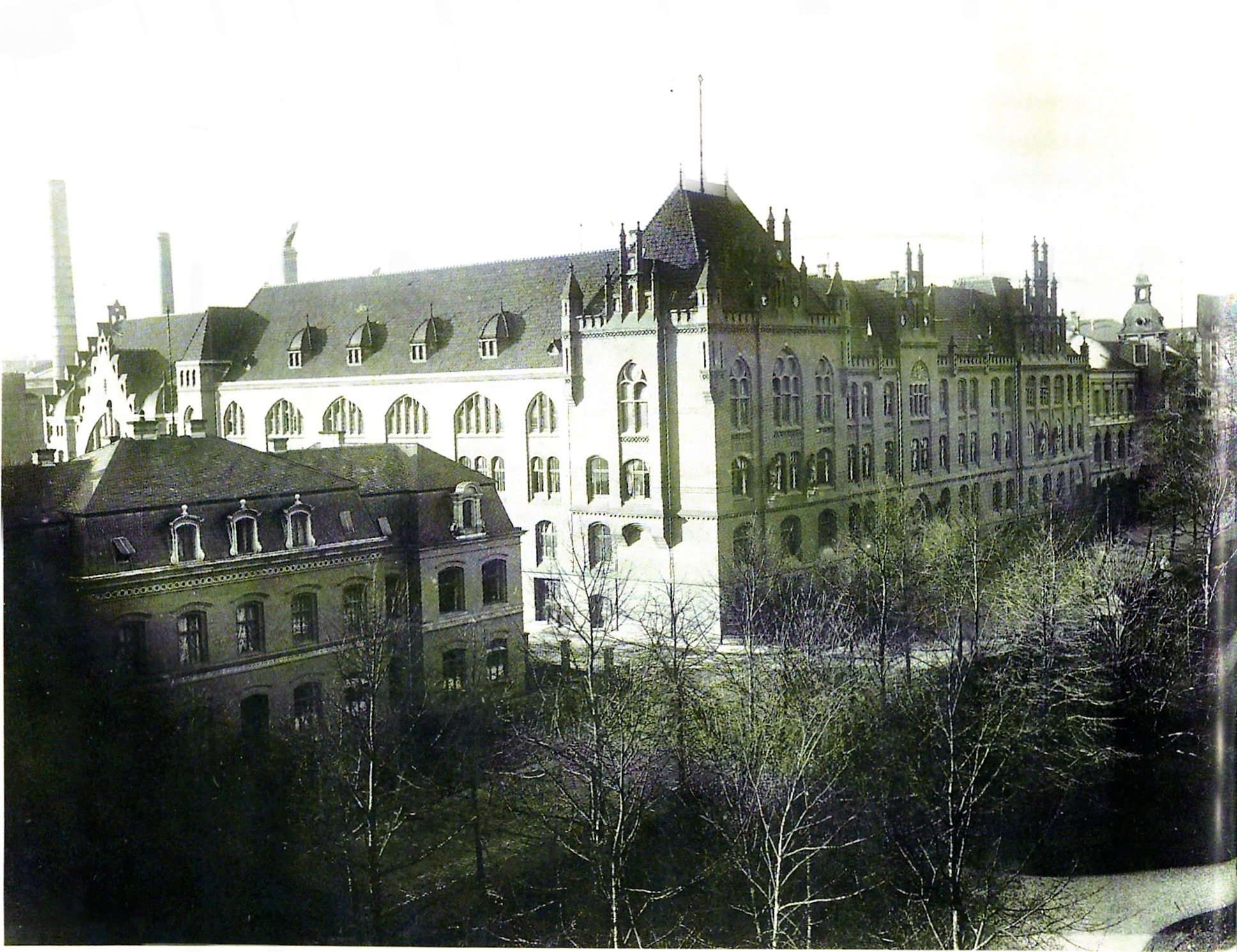|
Netherlands Competition Authority
The Netherlands Competition Authority (Dutch: Nederlandse Mededingingsautoriteit, NMa) was the competition regulator for the Netherlands. After a merger with the Consumentenautoriteit and Onafhankelijke Post en Telecommunicatie Autoriteit on 1 April 2013, it became the Netherlands Authority for Consumers and Markets (Dutch: Autoriteit Consument en Markt). The Netherlands Competition Authority monitored all Dutch markets, to ensure fair competition. The "Dutch office of Energy Regulation" (''Energiekamer'') was part of the Netherlands Competition Authority and committed to making energy markets work as effectively as possible. Tasks The main goal for the Netherlands Competition Authority was to ensure fair competition between Dutch companies. In order to do so, it focused on 3 main tasks: * To fight cartel-deals * To prevent the abuse of economic strength, for example in virtual monopoly or oligopoly situations * To check on the concentrations and spread of companies See also ... [...More Info...] [...Related Items...] OR: [Wikipedia] [Google] [Baidu] |
Government Of The Netherlands
The politics of the Netherlands take place within the framework of a parliamentary representative democracy, a constitutional monarchy, and a decentralised unitary state.''Civil service systems in Western Europe'' edited by A. J. G. M. Bekke, Frits M. Meer, Edward Elgar Publishing, 2000, Chapter 7 The Netherlands is described as a consociational state. Dutch politics and governance are characterised by a common striving for broad consensus on important issues, within both of the political community and society as a whole. Constitution The Dutch Constitution lists the basic civil and social rights of the Dutch citizens and it describes the position and function of the institutions that have executive, legislative and judiciary power. The constitution applies to the Netherlands, one of the four constituent countries of the Kingdom of the Netherlands (along with Aruba, Curaçao and Sint Maarten). The Kingdom as a whole has its own Statute, describing its federate political ... [...More Info...] [...Related Items...] OR: [Wikipedia] [Google] [Baidu] |
Competition Regulator
A competition regulator is the institution that oversees the functioning of the markets. And the Law in which it takes cognizance of situations having any type of impediments and distortions on the markets and correct them is the competition law (also known as antitrust law). In general it is a government agency, typically a statutory authority, sometimes called an economic regulator, that regulates and enforces competition laws and may sometimes also enforce consumer protection laws. In addition to such agencies, there is often another body responsible for formulating competition policy. Many nations implement competition laws, and there is general agreement on acceptable standards of behaviour. The degree to which countries enforce their competition policy varies substantially. Competition regulators may also regulate certain aspects of mergers and acquisitions and business alliances and regulate or prohibit cartels and monopolies. Other government agencies may have respo ... [...More Info...] [...Related Items...] OR: [Wikipedia] [Google] [Baidu] |
Netherlands
) , anthem = ( en, "William of Nassau") , image_map = , map_caption = , subdivision_type = Sovereign state , subdivision_name = Kingdom of the Netherlands , established_title = Before independence , established_date = Spanish Netherlands , established_title2 = Act of Abjuration , established_date2 = 26 July 1581 , established_title3 = Peace of Münster , established_date3 = 30 January 1648 , established_title4 = Kingdom established , established_date4 = 16 March 1815 , established_title5 = Liberation Day (Netherlands), Liberation Day , established_date5 = 5 May 1945 , established_title6 = Charter for the Kingdom of the Netherlands, Kingdom Charter , established_date6 = 15 December 1954 , established_title7 = Dissolution of the Netherlands Antilles, Caribbean reorganisation , established_date7 = 10 October 2010 , official_languages = Dutch language, Dutch , languages_type = Regional languages , languages_sub = yes , languages = , languages2_type = Reco ... [...More Info...] [...Related Items...] OR: [Wikipedia] [Google] [Baidu] |
Onafhankelijke Post En Telecommunicatie Autoriteit
The (OPTA, en, Independent Post and Telecommunications Authority) was an independent Dutch government agency charged with enforcing Dutch law on telecommunication, post and cable TV services that operated between 1997 and 2013. It was set up in 1997 as part of major government changes in the Dutch telecommunication sector and was absorbed by the Netherlands Authority for Consumers and Markets in April 2013. Headquartered in The Hague it was created to ensure competitiveness in the newly opened Dutch market for telephony and other telecom activities. Prior to 1997, KPN had a monopoly on the Dutch market, but after deregulation, other companies could also enter the market. It was OPTAs responsibility to make sure that KPN would not push the new players out of the market through its sheer size. The Dutch cable TV network is one of the densest in the world, with over 95 percent of Dutch households having access to cable TV. OPTA also used to regulate this market, and was a mediator ... [...More Info...] [...Related Items...] OR: [Wikipedia] [Google] [Baidu] |
Energy Market
Energy markets are national and international regulated markets that deal specifically with the trade and supply of energy. Energy market may refer to an electricity market, but can also refer to other sources of energy. Typically energy development is the result of a government creating an energy policy that encourages the development of an energy industry in a competitive manner. Until the 1970s when energy markets underwent dramatic changes, they were characterised by monopoly-based organisational structures. Most of the world's petroleum reserves were controlled by the Seven Sisters. Circumstances changed considerably in 1973 as the influence of OPEC grew and the repercussions of the 1973 oil crisis affected global energy markets. Liberalization and regulation Energy markets have been liberalized in some countries; they are regulated by national and international authorities (including liberalized markets) to protect consumer rights and avoid oligopolies. Regulators i ... [...More Info...] [...Related Items...] OR: [Wikipedia] [Google] [Baidu] |
Cartel
A cartel is a group of independent market participants who collude with each other in order to improve their profits and dominate the market. Cartels are usually associations in the same sphere of business, and thus an alliance of rivals. Most jurisdictions consider it anti-competitive behavior and have outlawed such practices. Cartel behavior includes price fixing, bid rigging, and reductions in output. The doctrine in economics that analyzes cartels is cartel theory. Cartels are distinguished from other forms of collusion or anti-competitive organization such as corporate mergers. Etymology The word ''cartel'' comes from the Italian word '' cartello'', which means a "leaf of paper" or "placard", and is itself derived from the Latin ''charta'' meaning "card". The Italian word became ''cartel'' in Middle French, which was borrowed into English. In English, the word was originally used for a written agreement between warring nations to regulate the treatment and exchange of p ... [...More Info...] [...Related Items...] OR: [Wikipedia] [Google] [Baidu] |
Monopoly
A monopoly (from Greek language, Greek el, μόνος, mónos, single, alone, label=none and el, πωλεῖν, pōleîn, to sell, label=none), as described by Irving Fisher, is a market with the "absence of competition", creating a situation where a specific person or company, enterprise is the only supplier of a particular thing. This contrasts with a monopsony which relates to a single entity's control of a Market (economics), market to purchase a good or service, and with oligopoly and duopoly which consists of a few sellers dominating a market. Monopolies are thus characterized by a lack of economic Competition (economics), competition to produce the good (economics), good or Service (economics), service, a lack of viable substitute goods, and the possibility of a high monopoly price well above the seller's marginal cost that leads to a high monopoly profit. The verb ''monopolise'' or ''monopolize'' refers to the ''process'' by which a company gains the ability to raise ... [...More Info...] [...Related Items...] OR: [Wikipedia] [Google] [Baidu] |
Oligopoly
An oligopoly (from Greek ὀλίγος, ''oligos'' "few" and πωλεῖν, ''polein'' "to sell") is a market structure in which a market or industry is dominated by a small number of large sellers or producers. Oligopolies often result from the desire to maximize profits, which can lead to collusion between companies. This reduces competition, increases prices for consumers, and lowers wages for employees. Many industries have been cited as oligopolistic, including civil aviation, electricity providers, the telecommunications sector, Rail freight markets, food processing, funeral services, sugar refining, beer making, pulp and paper making, and automobile manufacturing. Most countries have laws outlawing anti-competitive behavior. EU competition law prohibits anti-competitive practices such as price-fixing and manipulating market supply and trade among competitors. In the US, the United States Department of Justice Antitrust Division and the Federal Trade Commission are ... [...More Info...] [...Related Items...] OR: [Wikipedia] [Google] [Baidu] |
Cartel
A cartel is a group of independent market participants who collude with each other in order to improve their profits and dominate the market. Cartels are usually associations in the same sphere of business, and thus an alliance of rivals. Most jurisdictions consider it anti-competitive behavior and have outlawed such practices. Cartel behavior includes price fixing, bid rigging, and reductions in output. The doctrine in economics that analyzes cartels is cartel theory. Cartels are distinguished from other forms of collusion or anti-competitive organization such as corporate mergers. Etymology The word ''cartel'' comes from the Italian word '' cartello'', which means a "leaf of paper" or "placard", and is itself derived from the Latin ''charta'' meaning "card". The Italian word became ''cartel'' in Middle French, which was borrowed into English. In English, the word was originally used for a written agreement between warring nations to regulate the treatment and exchange of p ... [...More Info...] [...Related Items...] OR: [Wikipedia] [Google] [Baidu] |
Competition Regulators
Competition is a rivalry where two or more parties strive for a common goal which cannot be shared: where one's gain is the other's loss (an example of which is a zero-sum game). Competition can arise between entities such as organisms, individuals, economic and social groups, etc. The rivalry can be over attainment of any exclusive goal, including recognition: Competition occurs in nature, between living organisms which co-exist in the same environment. Animals compete over water supplies, food, mates, and other biological resources. Humans usually compete for food and mates, though when these needs are met deep rivalries often arise over the pursuit of wealth, power, prestige, and fame when in a static, repetitive, or unchanging environment. Competition is a major tenet of market economies and business, often associated with business competition as companies are in competition with at least one other firm over the same group of customers. Competition inside a company is usu ... [...More Info...] [...Related Items...] OR: [Wikipedia] [Google] [Baidu] |
.jpg)




